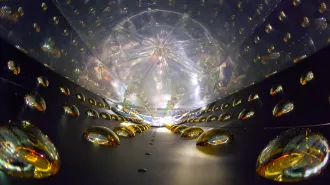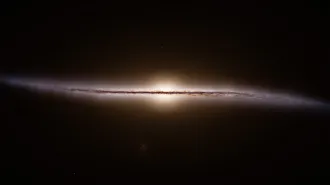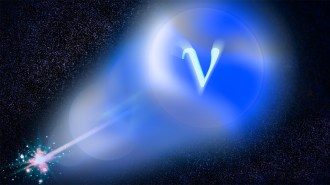The possibilities for dark matter have just shrunk — by a lot
The LZ experiment reports no signs of dark matter in their latest search

The LZ experiment is designed to detect light from interactions of dark matter particles using photomultiplier tubes (shown).
Matthew Kapust/Sanford Underground Research Facility







